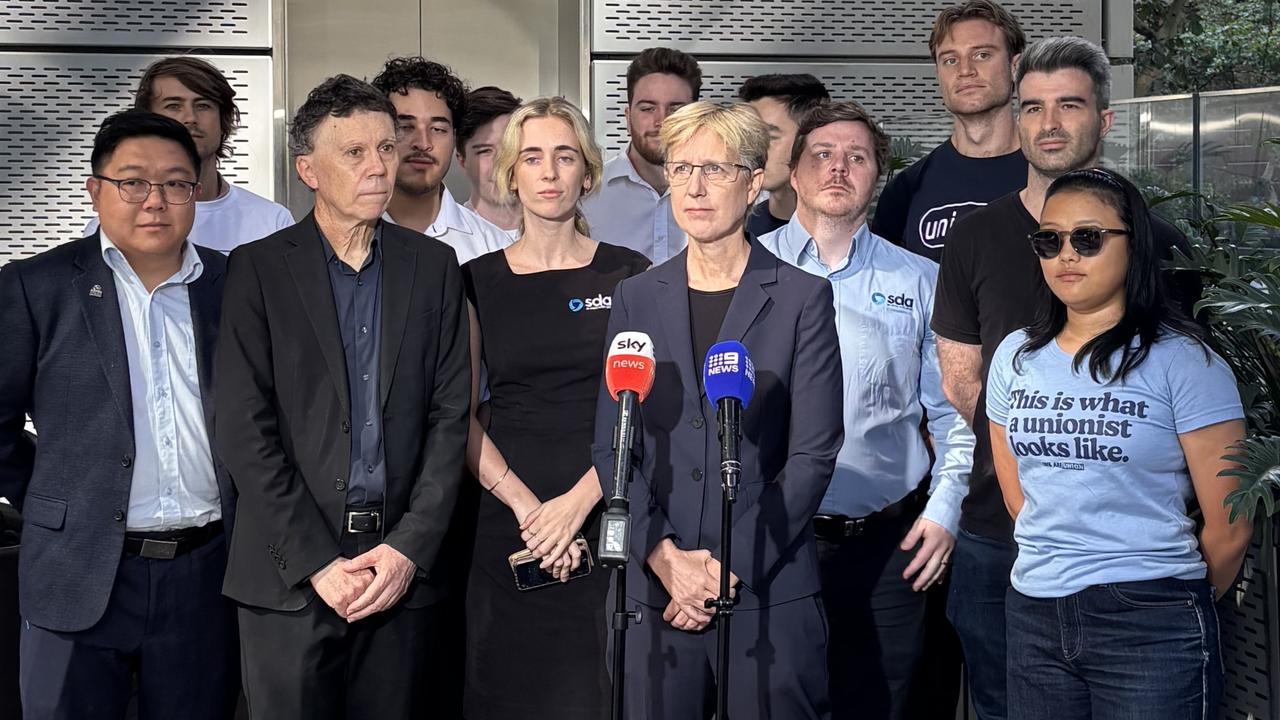Cost of living crisis: what families are cutting back on to survive
Struggling Aussie families are leaning on financial advice to help them navigate the cost of living crisis. These are the savings they are targeting.

Property
Don't miss out on the headlines from Property. Followed categories will be added to My News.
Before the cost-of-living crisis hit, Kate McGill had been living a comfortable life. But, after 13 interest rate rises and the price of everything from groceries to insurance soaring, the Sydney mum is feeling the pinch.
“Like everyone else I’m feeling a bit overwhelmed by it,” she says.
“Everything has gone up. Food costs are insane. I think our grocery bill has doubled in the past two years. Our mortgage has gone up significantly, sport registrations have gone up. The other day it cost $200 to fill up my car with petrol, but I didn’t have any clients that day. “That hurt.
“On the odd occasion we get a takeaway meal, and a $40 pad thai seems pretty normal now. I find that quite startling.”
McGill started her own company, Firefly Nutrition and Health Coaching, a year ago, but finds cash flow can be an issue when running a small business.
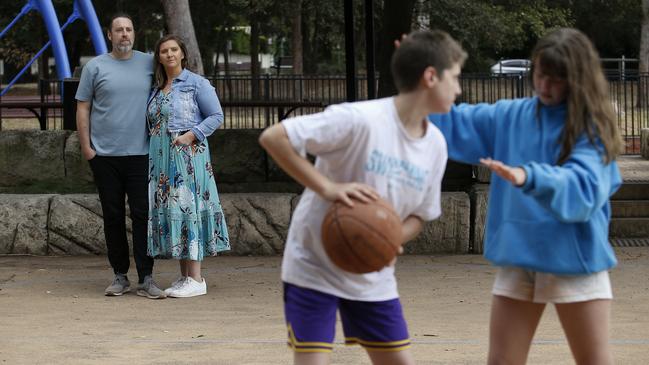
“Before that I worked as a dietitian for a while and even though the hourly rate was a lot less, it was a regular income, so you knew what was coming in,” the 40-year-old says.
To help make ends meet, McGill has begun shopping at discount supermarket Aldi, and cooking more vegetarian meals for her family, which includes her 12-year-old son Rex, 10-year-old daughter Mollie and husband Todd. She’s also had to postpone investing in things that will improve her business, such as new software.
“I’m readjusting my mindset that that’s something I can revisit down the track,” McGill says.
“I didn’t go into health care to make a lot of money but of course you need money to survive – to buy food, pay the bills and buy school uniforms. It’s really, really hard and I think it’s impacting people across all socio-economic areas.”
AUSSIE FAMILIES NEED AN EMERGENCY COST OF LIVING ‘BUFFER’
According to the Australian Bureau of Statistics, all Living Cost Indexes rose by between 6.3 per cent and 9.6 per cent over the year to June 2023. The biggest increases were in insurance and financial services, food and non-alcoholic beverages, and housing.
As a result, financial adviser Antoinette Mullins, from Steps Financial in Sydney, says a lot of “everyday mums and dads” are doing it tough.
“The ones who are really suffering are those who don’t have a buffer,” she says.
“If their car needs to be fixed, if they lose their job or they’re small business owners whose income isn’t as steady as it used to be, they have to dip into debt, like credit cards, and that can spiral out of control.”
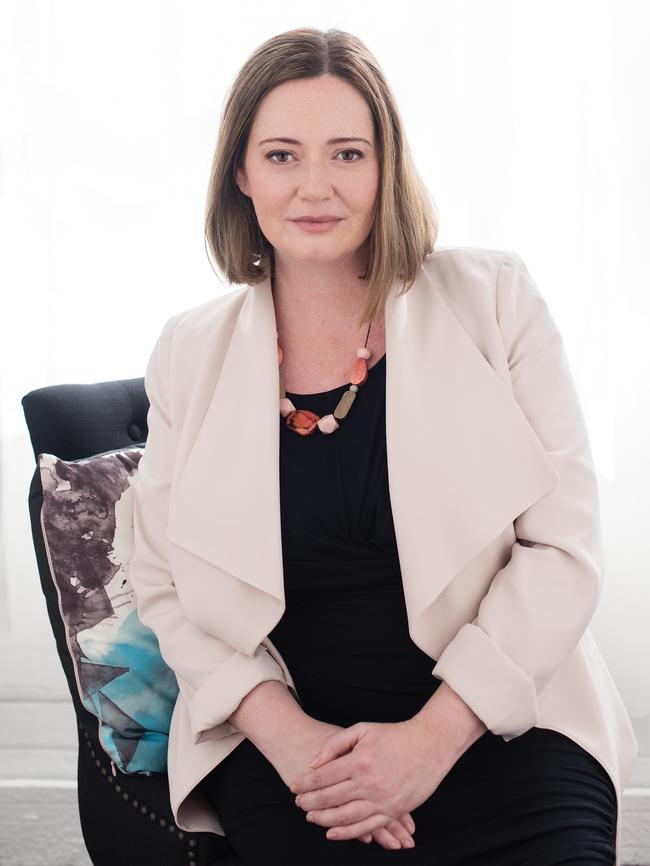
Mullins has found herself in strong demand, helping clients develop cash flow plans and identifying discretionary expenses, like streaming subscriptions and gym memberships, that they don’t use.
“The first thing we do is build an emergency buffer that people can dip into if they need to,” she says.
Lifeline financial counsellor Anne Holmes says rising interest rates have been among the biggest stressors.
“The average home loan in NSW is around $700,000, which translates to $1600-plus more per month that they have to find,” she says.
“That’s a huge impact for a lot of people.
“Rents have also gone up by about 13 per cent over the last year. The problem is when people get quite a significant rent rise, they don’t feel they have the ability to complain to Fair Trading because there’s so little in the way of available properties out there. It also costs around $3000 to move to cheaper accommodation, and they just don’t have the money.”
Holmes, who is based locally, says people are being forced to make difficult decisions.
“We’re seeing people who don’t have enough money to pay for their medicines, or they’re deciding not to put any money into insurance on the car but they’re still driving it and invariably there are accidents,” she says.
“People are using credit cards to take cash out to pay mortgages and rent, which you pay high interest for. A lot of people are resorting to buy now, pay later loans because they don’t have anywhere else to go to get money and there’s no assessment of whether you can afford those loans, which have quite high interest or penalties.
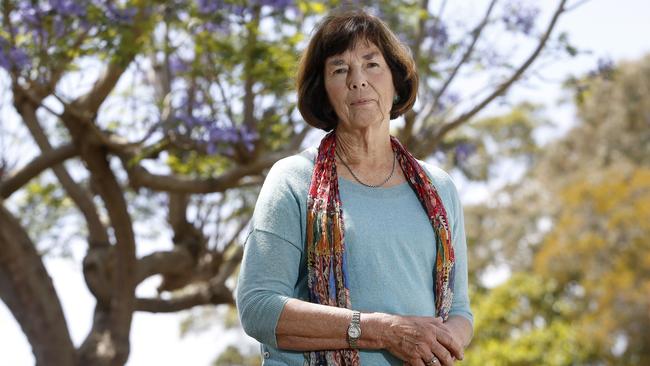
“By the time they come to us it’s usually escalated into something larger than it originally was.
“When I’ve seen this in the past it’s usually had unemployment with it; now people are largely employed. Quite a few of my clients have two or three jobs. I just can’t see it changing in the short-term, especially as the Reserve Bank wants a higher rate of unemployment.
“Then there’s going to be all the people going from fixed to variable interest rates. A lot of them are coming off at the end of this year and early next year, so that’s another group of people who are going to be very stressed.”
‘DIFFICULT DECISIONS NEED TO BE MADE’
While many people are reluctant to seek financial counselling, Holmes says it is better to do it early.
“People seem to seek help when it’s too late and they’re already in a lot of trouble,” she says. “It would be easier if they came to us when they could see their savings were running out. But most of these people have never had to seek help before, so it’s new to them and there’s a feeling of guilt.
“There’s always something you can do, such as getting relief from creditors or three months without a payment. The big banks are usually happy to assist when they have someone advocating for them. Financial counselling is free and a financial counsellor can talk to a creditor without emotions and present a more logical view of what they’re going to do going forward.”
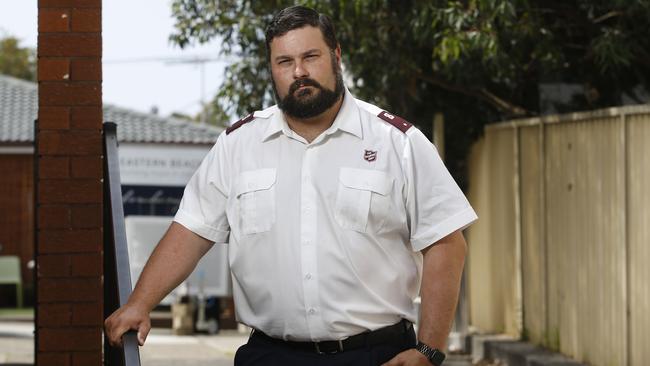
Charities are also in overdrive as they try to cater to growing demand.
“We’re just getting hit hard at the moment,” the Salvation Army’s Eastern Suburbs corps leader Keven Williams says.
“People who are from low socio-economic backgrounds are really finding it hard to keep up with the cost of living. They’re really doing it tough.”
The organisation offers emergency food hampers, which include donations from food rescue organisation OzHarvest, and community meals two days a week.
“Before Covid we probably had 30 or 40 people coming in for those meals and we’re now seeing around 60,” Williams says.
“To be honest, it’s even people who have good jobs who are struggling with the cost of their mortgage and rents. It’s just a really scary time.
“We have got 13 or 14 housing commission sites in our area, including La Perouse, Randwick and Maroubra.
“I also run a Men’s Ministry in Maroubra and we talk about what’s hard at the moment and they all bring up the cost of living and how they feel ashamed that they can’t provide for their families. It’s quite upsetting.”
In the lead-up to Christmas, Williams is also concerned about the organisation’s annual appeal.
“I think the donations this year will probably be a lot less because of the cost of living,” he says.
Disability pensioner Rod Azzopardi is among those who have turned to the Salvos for help. After 20 years living on the Gold Coast, the 52-year-old moved to Hillsdale near Maroubra in April to be closer to his mum, who was diagnosed with cancer.
Unable to afford the $520 per week rent on his own, he shares a one-bedroom unit with two single beds with a friend.
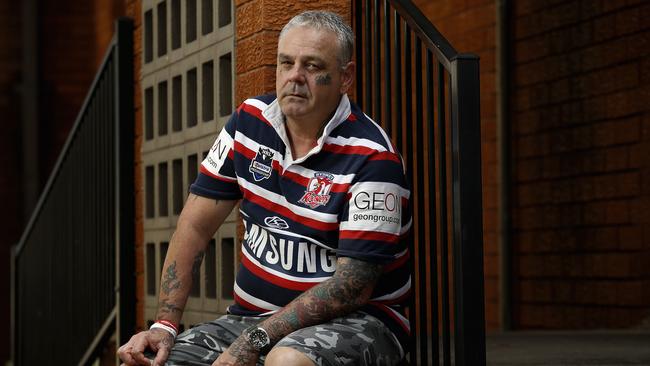
“It’s really hard,” he says.
“I don’t even go into the meat section at the supermarket anymore because I know I wouldn’t be able to afford it. My last gas bill was $206 – three months earlier it was $120. I have to budget every dollar, and I go to the Salvos to get food hampers. You see a lot of mums and kids come in there.”
Azzopardi, who injured his back at work more than a decade ago, says it’s got to the point that he feels scared to open bills.
“They may let us pay off bills but by the time you’ve paid off that bill another one comes in,” he says. “It has a real impact on your mental health.”
Woolloomooloo’s Matthew Talbot Hostel, which is operated by the St Vincent de Paul Society and provides temporary accommodation and meals to those in need, has seen demand increase by around 48 per cent year on year. It grew from helping 212 people in the 2021/22 financial year to 315 in the 2022/23 financial year.
Financial difficulties were cited as the most common reason for people seeking assistance, rising from nearly 20 per cent in 2021/22 to nearly 26 per cent in 2022/23.
“They’re at full capacity,” St Vincent de Paul Society NSW regional director – metropolitan Ashvini Ambihaipahar says.
“There’s this surge in people seeking support for the first time across the board.”
Originally published as Cost of living crisis: what families are cutting back on to survive



